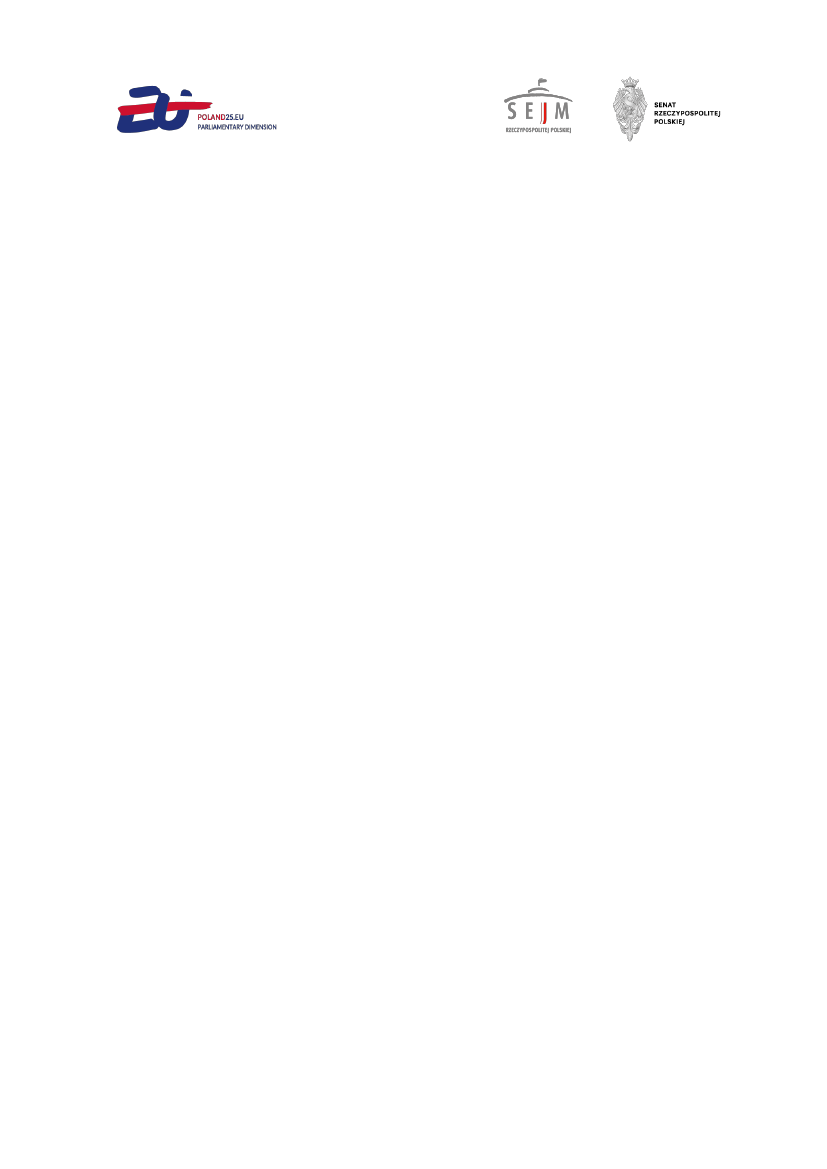
Contribution of the LXXIII COSAC
Warsaw, 8-10 June 2025
Security
1)
COSAC emphasises the necessity for Europe to take greater responsibility for its own
security and to strengthen European defence capabilities in full complementarity with
NATO and in line with the agreed guiding principles addressing critical gaps and
fostering a robust European defence industrial base, taking into account the defence
interests and policies of all Member States.
2)
COSAC stresses that, given the dynamic geopolitical situation, transatlantic
cooperation with NATO remains a cornerstone of security for an integrated Europe.
COSAC encourages the EU and NATO cooperation for security and stability in the Euro-
Atlantic area. Furthermore, COSAC reiterates that Europe must make the necessary
efforts to take greater responsibility for its own defence and assure fairer transatlantic
burden-sharing.
3)
COSAC calls for increased defence investment and underlines the importance
of Member States securing and strengthening their current and future investments in
military capabilities as part of their commitment to European and transatlantic
security, aligned with NATO capability targets.
4)
COSAC welcomes the European Commission's initiatives aimed at enhancing defence
capabilities, the European defence technological and industrial base, including the
ReArm Europe program and the White Paper for European Defence – Readiness 2030.
The EU security and defence cooperation will take place with full respect for Member
States’ security and defence policies and the competences of the Member States,
in accordance with the Treaties. COSAC underlines that any decision on EU
cooperation with any third country will take into account all Member States’ existential
interests, their sovereign rights and territorial integrity.
5)
COSAC notes the ongoing discussions on the legal basis of the proposed Security
Action for Europe (SAFE) instrument and underlines the importance of ensuring full
respect for the institutional balance and the European Parliament’s role in major
legislative initiatives.
6)
COSAC asserts that the protection of the EU’s land, air, and maritime borders
contributes to strengthening the security of the entire Union. COSAC stresses the
importance of ensuring security of regions most exposed to direct threats from Russia
and Belarus, and in this vein welcomes the recognition of, among other, the East Shield
and the Baltic Defence Line as flagship EU projects launched to deter and counteract
potential threats from the East. It underlines the need to effectively protect EU external
borders in compliance with the rules of Union law and international law.
1